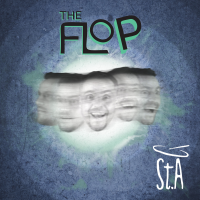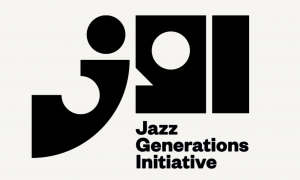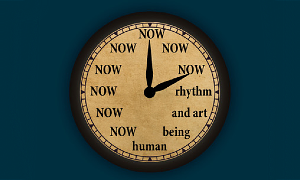Today, our conversation with de Fontenay continues, this time centering on what kinds of resources are available to westerners who want to learn more about this growing, evolving market.
Let's talk about the issue of music education and cultural exchange, then. Tell me about this Tomas Doncker tour Music Dish sponsored over the summer. What's the Chinese government getting out of having him perform at the Shanghai World Expo? What are you guys getting out of it?
The connection to the Chinese came at MIDEM. They invited him, he's invited to perform at the SHanghai Performing Arts Fair, which is organized by the subministries of culture, so it's a government setup. It's from an international conference, so they try to bring out lots of international artists, and this will be taking place as part of the Shanghai World Expo.
I'll give you a little story. During Hilary Clinton's first visit to China, her big concerns were the currency and Iran. The Chinese wanted to talk about one thing: the U.S. pavilion [at the expo]. Because the U.S. government, by law, cannot spend money on the pavilion, unlike other governments which had been spending money on their pavilions. And there hadn't really been an effort under the Bush administration to bring in private funds, and then we had the biggest recession we'd ever had, so Hilary Clinton turned around, and they were able to whip up, at the last minute, corporate sponsors. But to the Chinese, it was so important for them that, at their world expo, the Americans have a presence there. They're a world player, and they understand that culture is an important part of being a world player. I think the Chinese have a lot of appreciation for America's soft power. You walk through China, you see KFCs everywhere, there's an influence that you can exert that can be huge on a country. And so I think film, music, etc are one way that China can use to shift people's opinions. Other people who saw Gong Li in the late '80s, or the films that have come out more recently, that's taken on a more global aspect, and I think the Chinese governmentt feel that's had a positive impact on the way people see China.
So for Tomas, it's funny, they really want him to come in and play American music. One of the things that fascinates them—they requested reams of video of performances. And, in one of them, there's a harmonica player, and this is when we discovered that the Chinese are actually fascinated by the harmonica. And they told him, “You have to bring the harmonica player to play with the band." And he was not supposed to be in the lineup, either, but hey, buy a ticket for the harmonica guy! [laughs] That's a little interesting story. THey're very much looking at trying to educate their own people, and framing it as, “Hey look at these people coming here with their culture, and looking to present it to the Chinese people."
What kind of process would you prescribe for artists who still want to take the plunge into this market?
I have artists that come up to me and say, “I think my music would work well in China," and I turn around and ask, “So what Chinese band or artist do you sound like?" And none of them can tell me who they sound like. So the first thing is to do the research, to know what do Chinese listen to, what do they like, what segments and scenes are there for my music? Are those artists popular? Are they touring? Do that research before you do naything else.
One of the things that's going to change is it's going to become a lot easier to distribute your music in China, especially digitally. But if no one knows about the music it's like the tree falling in the forest that no one can hear, so you really need to know. You almost have to treat it as a parallel world that's very different from yours, and you have to rebuild and understand that market, and understand how it may work.
Find out which Western artists are getting into China and contact them. Ask them: how did you end up touring at the Shanghai World Expo? I think, once you feel comfortable, as an artist, knowing where your audience is, you've spoken to a lot of people, you know that there's a market for your music, you'd think the next step is to get your music distributed. But if you speak frankly to any artist who's worked the Chinese market—and I've heard this is true of the Indian market, which you'd think would be easier to penetrate because there is at least some English spoken there—and they'll say that if you're serious about the Chinese market, you should move there for a year. That's what you have to do. Move to Hong Kong, move to Beijing. I think the same could be said, to some extent, of the U.S. Can you break the U.S. market from a foreign land? Not really. You'd better be touring there and meeting industry people. That's why you have so many foreign musicians here in New York City.
But what about the research part? Where does one begin with that?
That's the really difficult part about China. I'll use India again as a counter-example because it's an emerging Asian market. If you want to learn about fans and reach out to fans in India, the number one site to use is Facebook. It's the most popular site there. And, to some extent, if you look at other markets, there are some American brands that have some measure of recognition abroad, they have enough traction that you could start there. China is an exception to this rule because of language—almost all the sites are in Mandarin, Chinese characters—but also because most of the major Western sites you'd want to use are blocked. Twitter is blocked. Facebook is blocked. YouTube is blocked.
So if you want your music video to be seen in China, you have to figure out how to get it onto a Chinese video sharing site. The major YouTube-like sites in China are Youku and Tudou. We actually work with a company called Mogo. It's the only online music TV channel in China. They're more like MTV as opposed to YouTube. They don't have user-generated content, they have studios, and they have live tapes of nearly any indie band that has any name recognition in China, or about a thousand bands. We developed a partnership with them, because they want more western videos. And those videos are being distributed through Youku and Tudou, where they have a branded presence, basically a partnership. They put the videos on there.
But think of it: in order to put your videos up there, how are you going to know how to create an account? Just the basics: How will anybody find the video if the title and the tags aren't in Mandarin? People aren't searching in English, they're searching in traditional Chinese characters. So those are all the barriers that people face when even tryin to get into China.
There are some websites that cover the Chinese music scene in English. There's ours, Music Dish*China, there's a site like the Beijinger, which covers the Beijing scene; Andy Best does Kung Fu Ology.com, which is a site that covers the Chinese scene, etc; you have a site called Rock in China, that's actually a wiki site, and there's information on all the bands; and most of these are driven by expats, living in China. Start there. We have a podcast where we feature indie Chinesee music. So listen to different podcasts. Tag or Tagteam Records, in Beijing, they have a regular podcast called Yellow Fever, for example, Dragon Radio has a podcast which does more cross-Asian. You have to look and really investigate what people are listening to and get a feel for what's having an impact on the market.
There is one aspect that people can think of in terms of test markets. ANd there is one in particular, or maybe I'd say one and a half. I mentioned Taiwan, and actually Taiwan's much easier because you don't have the governmental issues that China does, and somewhat more educated, more fluent in English perhaps—most of it is still in Mandarin, of course—but still, that might be an easier market to test and see how it might do in China by using Taiwan as a barometer. People used to do this with Canada; they'd bring a band to Canada, and if it worked there, they'd bring them to America. Kind of the same idea.
Another country to potentially try out is Singapore. I think it's 70% Chinese in Singapore, Mandarin-speaking, so the linguistic similarity in the culture is there. Not as much as Taiwan, but still it's part of the spectrum, and Taiwan has a lot of influence on Singapore. Singapore does have a very interesting, growing independent market. We've actually found some independent treasures in Singapore, which totally surprised me. I didn't anticipate that at all.

























